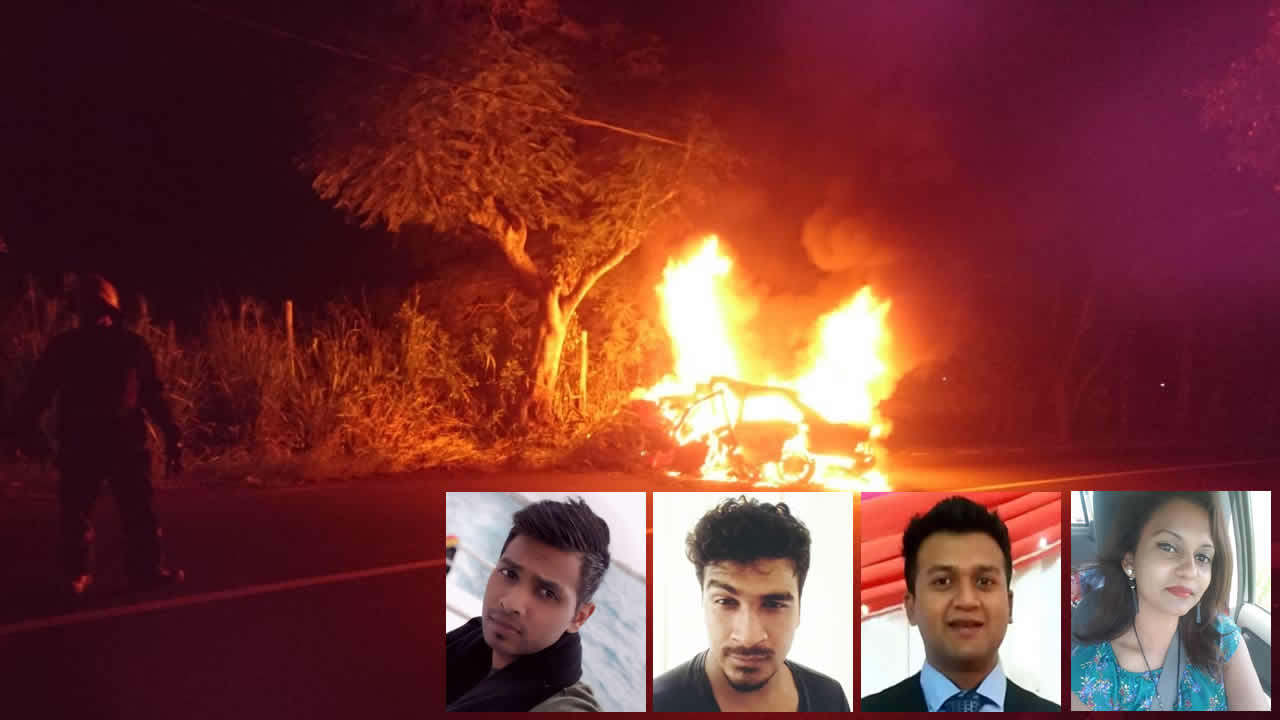
The New Year brings along new hopes and new perspectives. However, when it comes to road accidents, we see that the situation seems to stay stagnant and even getting more serious year by year. In fact, despite the countless measures implemented and various sensitisation campaigns launched by the Government last year, fatal road accidents are still making headlines. Why so and who or what should be blamed?

It’s only been three weeks since we embarked in 2019 and the number of road victims are already appalling. For the first fifteen days of the year, we are already counting eight deaths on our roads. The accident which occurred at Mapou, in the north of Mauritius, where four young persons aged between 22 and 25 lost their lives, has shocked the population beyond belief. They crashed into a tree and flames ravaged the car with the young occupants trapped inside.
In 2018, 141 people lost their lives in road accidents. A slight decrease has been noted compared to 2017 where 156 victims were identified. Moreover, out of the141 road victims, 46 were aged between 26 and 50 and five were under 15. Does the slight decline mean that we should be more lenient? Are the measures implemented not having an impact enough on road users, especially for the youth? Why are more young persons dying in such circumstances? Stakeholders in the field share with us their views on this critical matter.

According to Alain Jeannot, President of ‘Prévention Routière Avant Tout’ association (PRAT), it is not because of a slight decline in the number of victims that the major stakeholders should take a backseat. “We must instead continue with the good work in order to lessen the number of victims. The challenges in front of us are big. We need to increase the sensitisation campaigns, especially among the youth.” The latter reveals that the youth aged between 15 to 29 are the most vulnerable to become road victims. Why so?
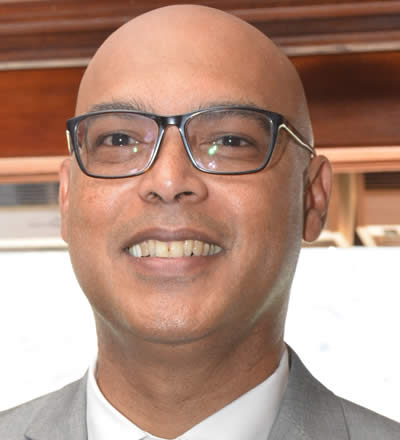
Responsibility on the road
Alain Jeannot utters that the youth are less experienced as drivers. “There is also the fact they are fond of taking risks and there is the thrill for speeding. They need to be educated properly and warned against the consequences of risk taking and speed and this should start at home and then continue at school. Unfortunately in Mauritius, our education system is more focused on academic rather than on core life values such as one’s responsibility on the road, among others. In addition, there is a lack of politeness and courtesy on the road and the youth are less conscious about the respect for one’s life. In other countries like France, for example, the youth are more conscious about these, as they study philosophy at school. Parents have a huge responsibility in all of this.”
He trusts that the Government should introduce the probation of driving licence. “There are a lot of measures we should implement as well as review in our system. A young person who has just obtained his/her licence must be subject to certain limitations on the road. The Government should absolutely introduce the probation of driving licence. The youth now have more access to driving vehicles through their parents. The Mauritian families have a better quality of life and many households have two cars or more. Some parents are unconscious about the dangers and they spoil their children. This is why education on the road dangers should be ongoing.”
Alain Jeannot underlines that the youth are very much influenced by films which glorify speed and car races and this imprints on their behaviour on the road. “We need role models to educate our youth. We must bear in mind that there is not only the law which should be enforced when it comes to driving, the civil society also has a significant role to play.” The President of PRAT shares that he has made a clip together with the Rotary Club of Grand Baie during the end-of-year festivities, in order to sensitise more people about road accidents linked to factors such as a decline in vigilance and increased consumption of alcohol and other intoxicating substances.
“This awareness video, warning against these risks, was launched last December by Rotary Club of Grand Baie in partnership with Prevention Routiere Avant Tout. Entitled ‘Fer Fet, Pa Fer Defet’ (‘Be Merry Rather Than Risky’), the clip has been shared on social networks where it has reached more than 13,000 views in less than 48 hours. The short film targets youngsters which account for more than 40% of road fatalities while they only stand for 23% of our population. Rotary Club of Grand Baie and Prevention Routiere Avant Tout calls upon conjugated efforts for safe sharing of the roads,” utters Alain Jeannot.
Statistics : According to the Police Public Relations Office, the statistics of road offences recorded for the year 2018 are as follows:
- Speed Excess – 81,039
- Positive Alcohol Test – 2083
- Dangerous Driving – 231
- Driving without seat belt on – 9206
- Use of mobile phone while driving – 8008
- Worn tires – 2740
- Motorcyclist failing to wear helmets – 1506
- TOTAL NUMBER OF CONTRAVENTIONS FOR 2018 – 223,874
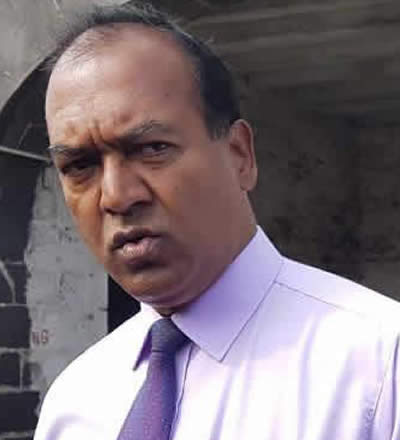 Inspector Shiva Coothen : “The youth must become role models for future drivers”
Inspector Shiva Coothen : “The youth must become role models for future drivers”
Inspector Shiva Coothen from the Police Public Relations Office explains that during the past year, sensitisation campaigns couple with amendments in the Road Traffic Amendment Bill, which was enforced as from 1st October, has had a positive effective. “The statistics speak for themselves.
There have been 15 less victims of fatal road accidents compared to 2017. However, we are not saying that we should rejoice. Each death adds up to the number of victims.”
He, however, underlines that unfortunately since the beginning of the year, there already have been eight victims of road accidents. “Despite this, the police are not giving up on their efforts to curb fatal road accidents. We are laying emphasis on the education of drivers and future drivers. We continue to provide advice to road users through different media outlets daily.
Police officers of the Traffic Branch Unit, from the different police stations around the island, among others, are doubling their efforts to ensure that there are no problems on our roads. Police officers are constantly present on our roads and at different check points. They also carry out checks at various places, apart from where there are cameras. Police officers also make use of speed guns to track down those who are not respecting the speed limits.”
Inspector Shiva Coothen states that speed excess in addition to drink driving is one of the major factors of fatal road accidents in Mauritius. “For those who drink and drive, they can have their licence suspended and imprisonment of not more than five years. If someone cumulates over five offences, his/her licence can also be suspended.” Commenting on the fact that youth are commonly victims of road accidents, the latter says that often, their immaturity makes them commit excesses. “When the youth pass the written as well as practical driving test, they learn all rules and regulations and we see that they showcase good driving skills.
However, after obtaining their licence, many will no more pay attention to traffic laws. Their imprudence and lack of consciousness lead them to unfortunate consequences.”
He underlines that the youth must always be careful and on their guard when driving. “For example, he/she must make sure his/her vehicle is in a good state, all the flashes are working among others. The youth must become role models for future drivers. The police continue to educate the youth through campaigns, talks organised in schools and youth centres, among others.”
 Raffick Bahadoor : “Our stakeholders and our system are failing us”
Raffick Bahadoor : “Our stakeholders and our system are failing us”
President of the General Taxi Owners’ Union (GTOU), Raffick Bahadoor utters that the official stakeholders are afraid to reveal certain facts and this contributes to disinformation. “We need to face reality. Our driving licence system and tests are not good. It is a system which was valid in the 60’s and 70’s but not now. At that time there were not so many vehicles on our road. In addition to this, our roads are small and we have roundabouts everywhere. Since last year, we have had to show practice a lot of patience on our roads due to the various road works being carried out. However, I trust that there are many shortcomings, as there are now more roads to enter the capital than to get out. We have a lot to review.”
Regarding the youth being more affected by road accidents, the latter states that he is against the fact that a youth can have access to the same rights as an experienced driver. “How come a youth who has just obtained his licence has the same right on the road as someone who has a twenty- or thirty-year driving experience? We have to understand that after fifty years of Independence, it is urgent to improve many things in the country.” Raffick Bahadoor utters that the youth act irresponsibly on the road. “They let themselves being carried away by their emotions. They are impatient, they swear at other drivers, some will not hesitate to even start a fight and beat up people. They do not want to abide by the law. Our stakeholders and our system are failing us,” he says.
He trusts that there are many measures which can be brought forward. “We need laws which will make people and especially the youth think twice before committing offences. We should, for example, impose a fine on someone who is not wearing his/her fluorescent jacket when driving the motorcycle. The fine should be doubled and tripled if it is repeated and finally, if it occurs a fourth time, then the person’s licence should be suspended for a certain period. The Government should also come forward with the probation driving licence depending on the person’s age. For example, a youth aged 18 should obtain a probative driving licence of five years while someone aged 30 should obtain a two-year probative licence.”
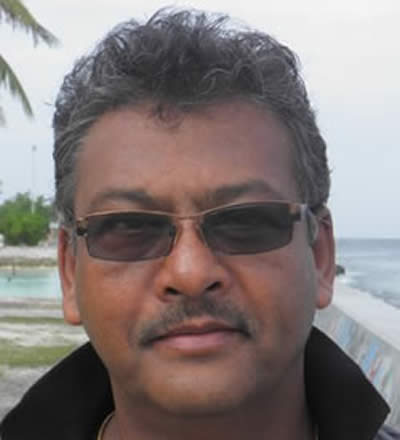 Manoj Raj Kumar : “Develop a more responsible behaviour among our young drivers”
Manoj Raj Kumar : “Develop a more responsible behaviour among our young drivers”
On the other hand, Manoj Raj Kumar, secretary of the Approved Driving Instructor Association says that there are a small number of carefree drivers. “These types of drivers do not pay any attention to the sensitisation campaigns and to the rules and regulations. It is hard to change their mindset. We have to ask ourselves: Has the increase in fines deterred people from committing road offences? We do not need a system which is based on repression but rather one which changes the mindset and people’s behaviour on our roads.”
He underlines that coupled with the human factor, infrastructures also contribute to road accidents. “We have bypasses everywhere. The government says that they cannot make provision for additional lanes for motorcycles and bicycles as our roads are too small. There are places where the markings for road signs have faded or the road signs themselves are broken. But we wonder if they take into consideration the safety of road users?”
Manoj Raj Kumar is also of the opinion that the young drivers are very much carefree and unconscious of the road dangers. “Youths enjoy the freedom that their parents give them when it comes to driving. They have access to high powered and luxury vehicles. They are not conscious about the effort put by their parents to buy such expensive cars. This is why they often commit great offences on our roads. I trust we should review laws such as car tuning.” He trusts that the youth are also influenced by car speeding and racing games. “They believe they can do the same on our roads. All stakeholders should join together to show them the consequences of carefree actions on our roads.”
The secretary of the Approved Driving Instructor Association adds that the results of the sensitisation campaigns and law introduction should not be regarded only in terms of the number of victims. “We should pay more attention to the change in mindsets and behaviours on our roads. I am in favour of the probation driving licence. I trust that, for example, a two-year probation licence will help to develop a more responsible behaviour among our young drivers. They will also have the time to learn how to behave and what to do in certain difficult situations. Also our driving test is too exam oriented. There are changes which need to be brought.”
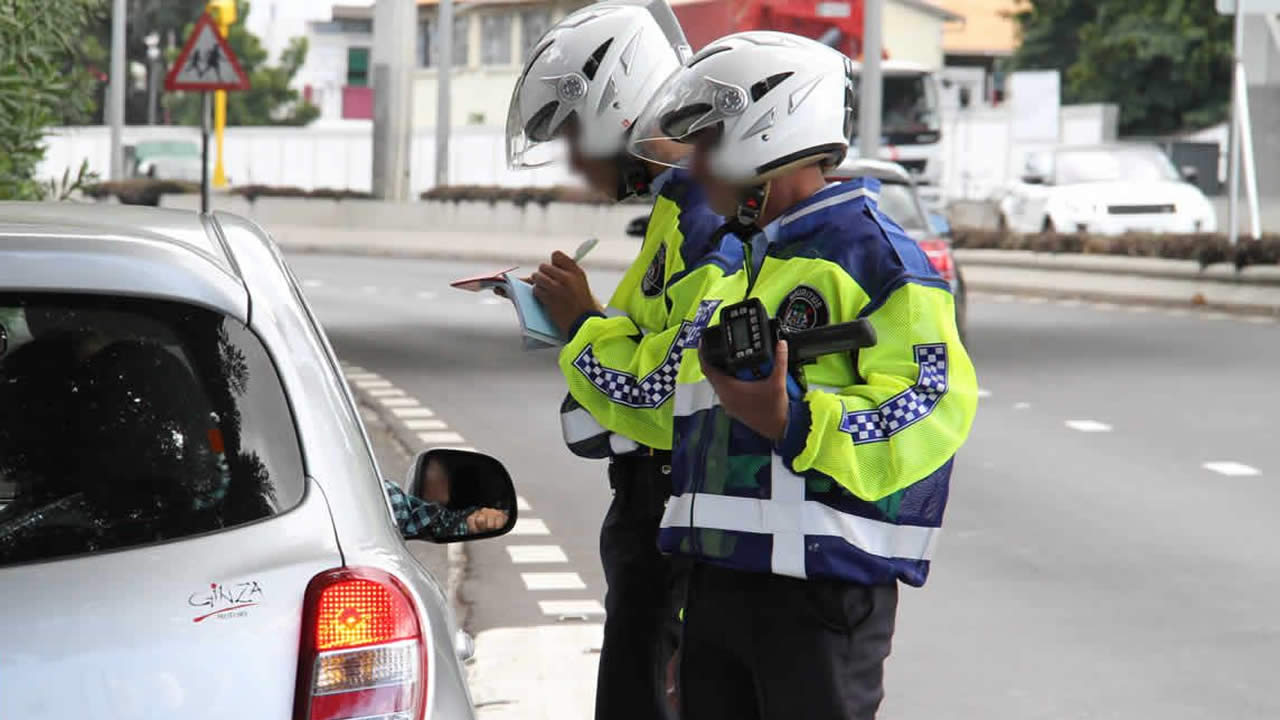
Measures implemented
Since its election, the MSM government has implemented countless measures and launched several sensitisation campaigns. In 2016, the then Prime Minister Sir Anerood Jugnauth stated at the first meeting of the National Road Safety Commission that he is “determined and has the political will to take necessary measures to fight road trauma, because the road safety situation in our country is unacceptable.” The main objective of the Commission is the adoption of the National Road Safety Strategy 2016-2025.
Last year in February, the Prime Minister launched the national road safety campaign ‘Ensam Pa Laisse Koltar Touy Nou Fami’. Pravind Juganuth announced that number of offenses related to traffic violations will shift from 11 to 24, that the amount of fines under the ‘fixed penalty’ will increase consequently and that the police will ask the court to suspend a driver’s license if the latter has committed six cumulative offenses.
During the third meeting of the National Road Safety Commission in September the Minister of Public Infrastructure, Nando Bodha announced that strict penalties would take effect from October, the introduction of a national database for vehicles where information on each vehicle will be made available police, insurance companies and the National Transport Authority (NTA) and the launching of a 15-day awareness campaign.
Most recently in December, Nando Bodha announced that Road Safety Education will soon be a reality in primary schools. He explained that a total of 885 people, including teachers and Deputy Head Teachers, will be trained on road safety for five days. The training was offered by the Civil Service College in collaboration with the Ministry of Public Infrastructure and Transportation.
In the Budget 2018-19, Prime Minister Pravind Jugnauth underlined that the law will be amended to provide for tougher penalties for road traffic offences, including speeding, driving under the influence of alcohol and drugs and dangerous driving. He said that
- the list of offences in relation to which a Fixed Penalty Notice may be served will be consolidated and increased from 141 to 204;
- the fine in respect of speeding by more than 25 km per hour above the speed limit will be increased from Rs 2,500 to Rs 10,000;
- fines in respect of driving while under disqualification, driving without a licence and authorizing a person prohibited from driving by reason of age to drive, will be increased from Rs 10,000 to Rs 100,000;
- after committing three Cumulative Road Traffic Offences listed under the new Penalty system, a driver will be issued with a Cumulative Road Traffic Notice informing him that on being convicted for two more Cumulative Road Traffic offences, his licence will be suspended for a period of 6 to 12 months;
- zero tolerance of alcohol in the blood will be applied to drivers. 198. In addition, the Police Force will be provided with additional mobile speed cameras to undertake spot checks. 199.
- install conspicuous traffic signs to alert drivers of accident-prone areas; and intensification of the educational and awareness programmes, training of driving instructors and review of driving testing standards.

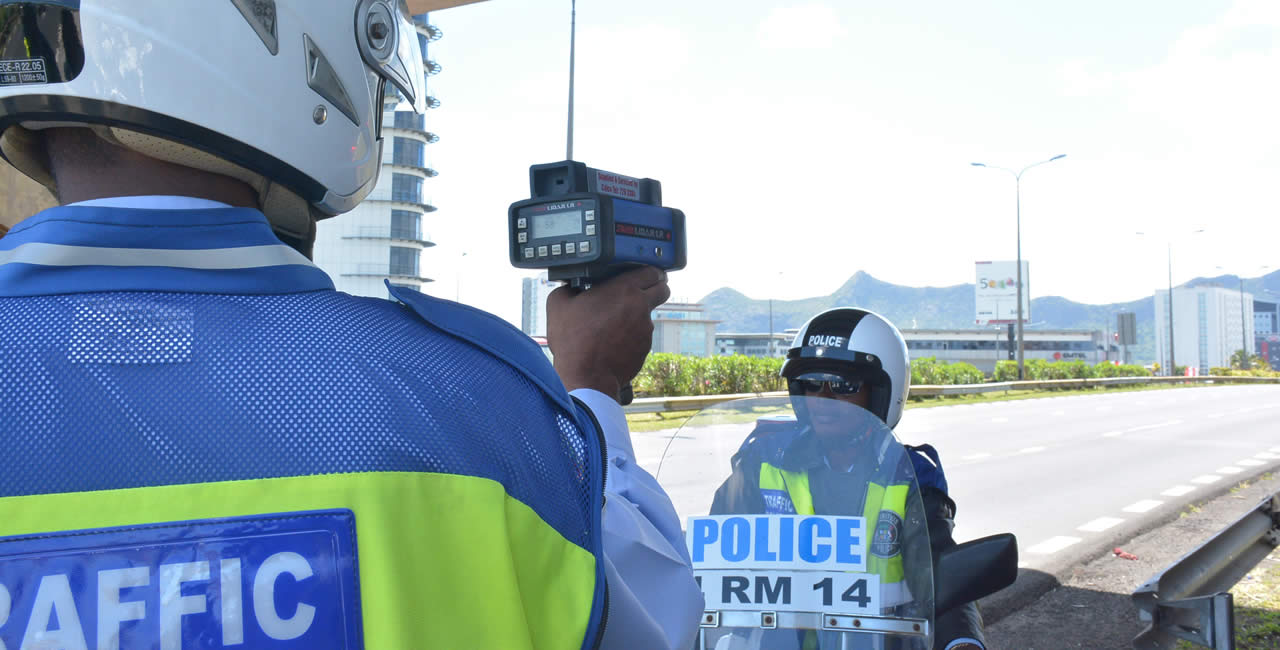
 Dr Satish Boolell : “People should bear in mind the importance of life”
Dr Satish Boolell : “People should bear in mind the importance of life”
The retired Chief Police Medical Officer totally agrees with the fact that despite the countless sesnsitisation campaigns and law amendments, no major change has been noticed. “It is because we have hired an expert who knows nothing about roads and the traffic system in Mauritius, and who is used to driving on the opposite side,” utters Dr Satish Boolell regarding the advisor of the Minister of Public Infrastructure.
He states that what we need is the introduction of speed cameras in places at risks. “We urgently need cameras in black spots where accidents often occur. What about the low cost bulbs which are used to light our roads? There are also places where there are no lights at all. In addition to these, there are roundabouts which have not properly been set up. Have you had a look at the Jin Fei roundabout? Our authorities cannot only rely on bumps or cameras only to do the work.” He adds that a major work should be done when it comes to car fitness. “I trust that after the fitness is done, there is still the need to carry our random checks.”
For Dr Boolell, a big conference on road accident should be organised in the island. “We should bring together those who know our roads very well. For example the taxi drivers, the school bus drivers, the heavy lorry drivers, those who are used to driving in dangerous places and where accidents often occur. These people are well versed about the state of our roads and they know where the dangers lie.”
The latter emphasises that we focus too much on the number of road victims. “It is not the statistics about the deaths that we need. We need to know how many injured people there are, how many people’s lives have been affected due to road accidents, how many admissions there are in the hospitals due to road accidents, among others. We have hollow slogans which do not have any kind of influence on our road users. We also need to know where accidents most often take place, the age group mostly involved in road accidents and most importantly the reasons why this or that accident took place. There are too many unsolved road accident cases.”
When it comes to the youth, Dr Boolell states that it is important to make the youth understand that our roads are not designed for high speed driving. “What we need to do is to educate our youth in an intelligent manner.” According to him, one of the major causes of road accidents is the use of mobile phone while driving. “Mobile phone is a disease. I witness people using their mobile phones while driving every day. People should bear in mind that there is nothing more important than their lives.”
 J'aime
J'aime














